
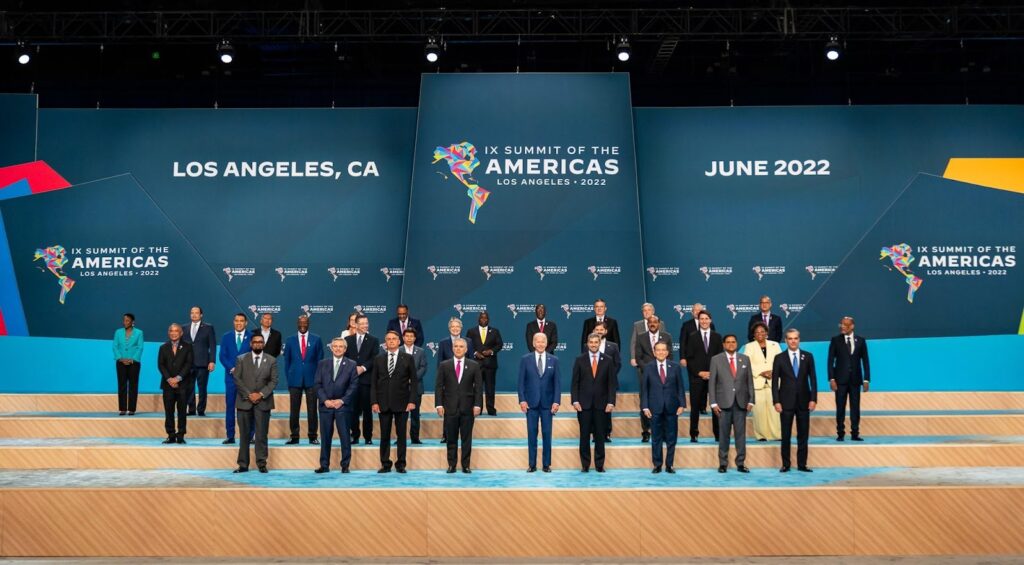
“We have three global crises, and any one is sufficient to bring us down,” said Prime Minister Mia Mottley of Barbados, who talked about the triple threat of climate change, the pandemic, and the rising costs of food and fertilizer.
“The climate crisis hurts from you here in California, in fires, to us in the Caribbean, through the heart attack of hurricanes and the chronic incidences of water crises and droughts or floods, depending on where you go,” she said.
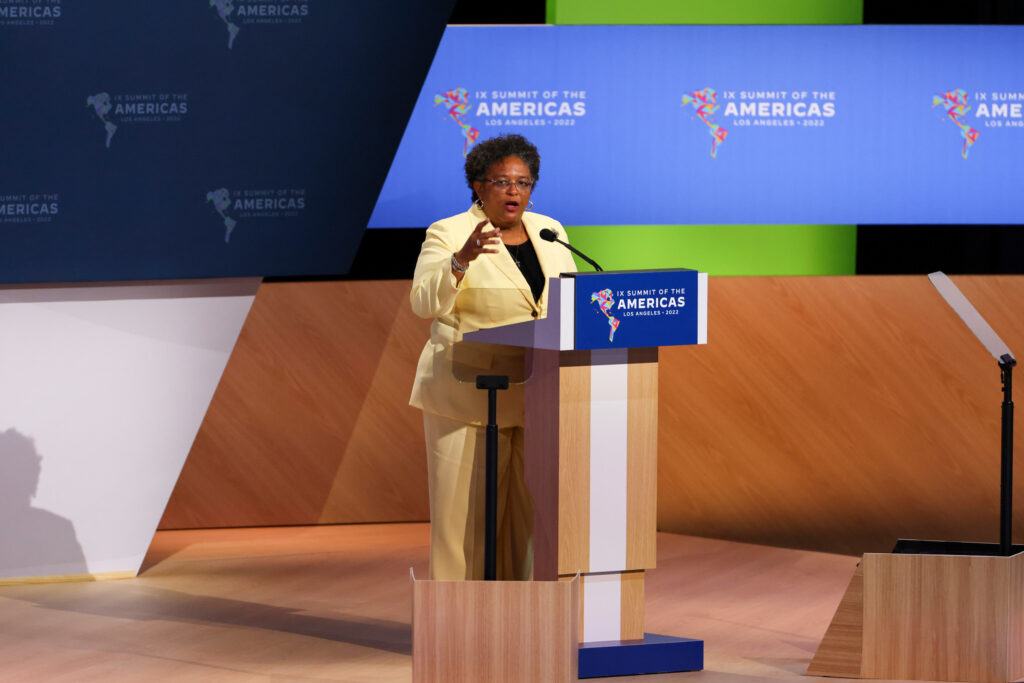
The impacts of climate change can be abrupt, as with hurricanes, or more gradual, as with droughts, noted Prime Minister Mia Amor Mottley of Barbados.
The challenge of tackling climate change was a recurring theme—especially, though not exclusively, among Caribbean countries.
The Bahamas has taken a hit from at least 11 major storms in the last 20 years, said Prime Minister Philip Davis, who pointed out that this year’s Atlantic hurricane season had just begun, on June 1. “More than half of my country’s debt can be linked to hurricanes,” he said.
Prime Minister Gaston Browne of Antigua and Barbuda said that “genuine international cooperation” is needed to help small countries that are sometime forced to borrow on commercial terms to recover from crises.
“This borrowing to repeatedly repair infrastructure damaged by the impact of climate, and more recently, to finance extraordinary expenditure incurred in response to the COVID-19 pandemic, has enlarged our debt burden, leaving little fiscal space to build resilience and to construct necessary physical infrastructure,” he said.
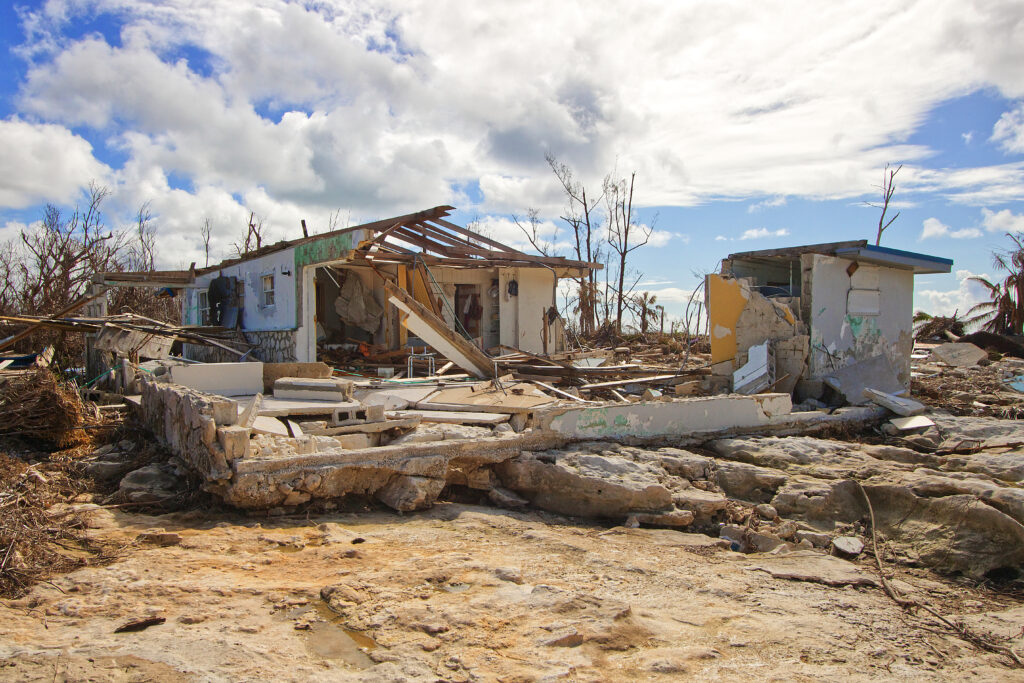
The Bahamas has taken a hit both from hurricanes and from the debt that follows them, according to Prime Minister Philip Davis.
Canadian Prime Minister Justin Trudeau underscored the need to “think creatively” to address climate risks in vulnerable countries. “Canada supports concessional financing for these at-risk middle-income countries, including small island developing states, so that they can build resilience,” he said.
President Alberto Fernández of Argentina also drew attention to the need for urgent action on climate, noting that countries that are not responsible for the world’s greenhouse gas emissions nonetheless suffer the consequences. “The environmental injustice that we experience is destroying our continent,” he said. “We must confront the ecological transition with sufficient financial assistance that can mobilize innovation with social justice.”
Colombian President Iván Duque called for additional multilateral financing mechanisms to respond to climate needs—not just loans but solutions such as debt swaps for climate action. He also urged countries in the region to do their part to protect the region’s environment, including the Amazon, coral reefs, and the Andean ecosystems known as páramos. “Although our nations are not the main emitters, we have to lead by example,” he said.
This was the first time the United States had hosted the Summit of the Americas since it launched the process 28 years ago in Miami. The Ninth Summit, which took place the week of June 6, brought together 31 countries, 23 of which were represented by the head of government and the others by the foreign minister or another high-level official. (Uruguay’s President Luis Lacalle participated virtually, after testing positive for COVID-19.)
The White House had made what it called a “principled decision” to exclude Cuba, Nicaragua, and Venezuela, a move that prompted fierce criticism from many countries in the region. Several leaders, including Mexican President Andrés Miguel López Obrador, chose not to attend personally but sent a delegation. The island nation of Saint Vincent and the Grenadines stayed away altogether.
U.S. President Joe Biden acknowledged the disagreements over participation but stressed that the countries were united on substantive matters, including on migration policy and the need to strengthen health systems and address pressing problems such as food insecurity and climate change.
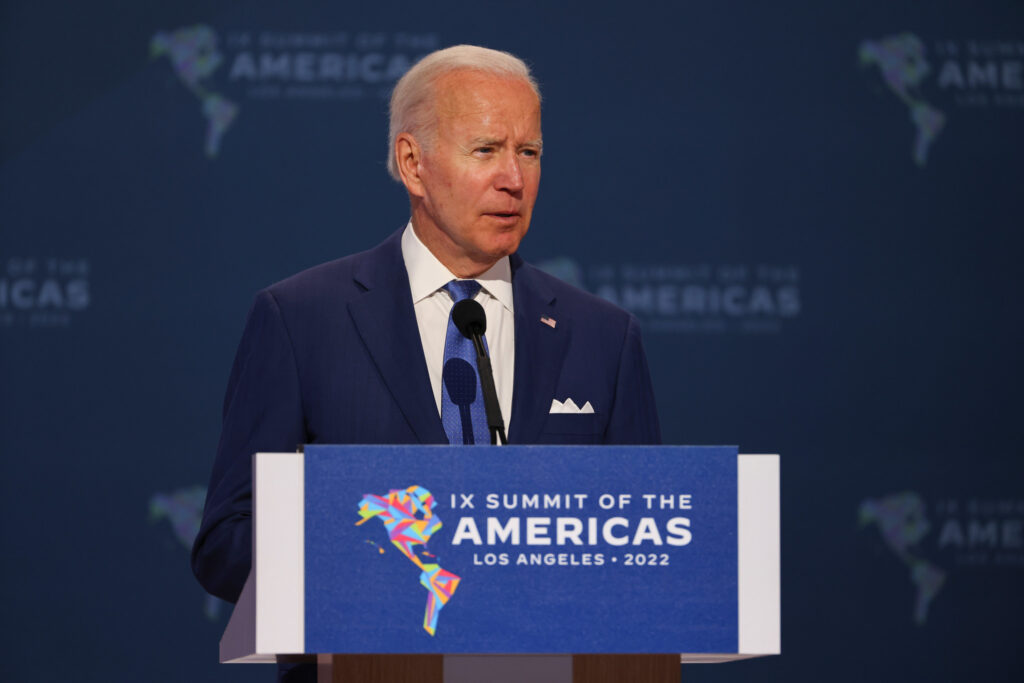
U.S. President Joe Biden stressed the connection between climate action and jobs during his remarks at the Ninth Summit of the Americas.
At the opening ceremony, he tied the issue of climate to economic opportunities, echoing a theme he has stressed since his presidential campaign.
“When I hear ‘climate,’ I think jobs—good-paying, high-quality jobs that will help speed our transition to a green economy of the future and unleash sustainable growth; jobs in developing and deploying clean energy; jobs in decarbonizing the economy; jobs in protecting biodiversity of our hemisphere; jobs that will provide dignity of being able to feed your family, give your children a better life, and envision a future of possibilities,” he said.
In Los Angeles, Biden announced a new initiative called the Americas Partnership for Economic Prosperity, which he said will help spur economic growth, foster innovation, and tackle climate change. A White House fact sheet laid out the key areas of focus: reinvigorating regional economic institutions and mobilizing investment; making more resilient supply chains; making public investments and innovations in public administration; creating clean energy jobs and advancing decarbonization and diversity; and ensuring sustainable and inclusive trade.
Among the other climate-related initiatives the White House unveiled in Los Angeles:
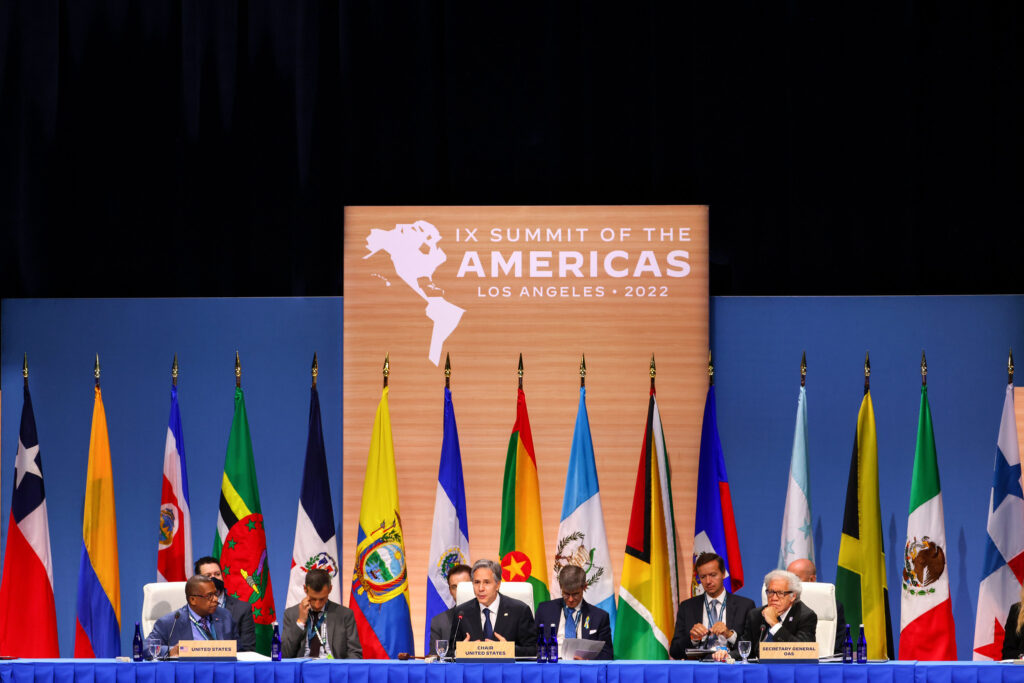
U.S. Secretary of State Antony Blinken speaks at the Ninth Summit of the Americas, held in the United States for the first time since 1994.
The region’s leaders also adopted climate- and energy-related commitments which had been negotiated in advance of the Ninth Summit through the Organization of American States (OAS). One of these, called “Our Sustainable Green Future,” commits the countries to efforts to halt and reverse deforestation and conserve and sustainably manage ecosystems; decrease emissions from agriculture, forestry, mining, and other land-use sectors; harness the role of oceans and other bodies of water to mitigate and adapt to climate change and combat plastic pollution; and accelerate climate adaptation measures, among other steps.
Through another agreement, called “Accelerating the Clean, Sustainable, Renewable, and Just Energy Transition,” the countries commit to promote energy efficiency in new public and private infrastructure plans; incorporate an inclusive approach in the process of digitalization, democratization, and decentralization within their energy transition strategies; and advance implementation of the Global Methane Pledge, among other measures. They also pledge to promote multilateral cooperation to increase the use of renewable energy, including through RELAC and the Energy and Climate Partnership of the Americas (ECPA)
Several other climate announcements were made on the sidelines of the Summit. For example, Chile launched a new coalition to help protect the Pacific Ocean, an effort that will also include Canada, Colombia, Costa Rica, Ecuador, Mexico, Panama, Peru, and the United States. The governments of Canada and California, meanwhile, signed a memorandum of cooperation on climate action and nature protection to promote efforts to reduce vehicle emissions and meet other shared goals.
 View Map
View Map